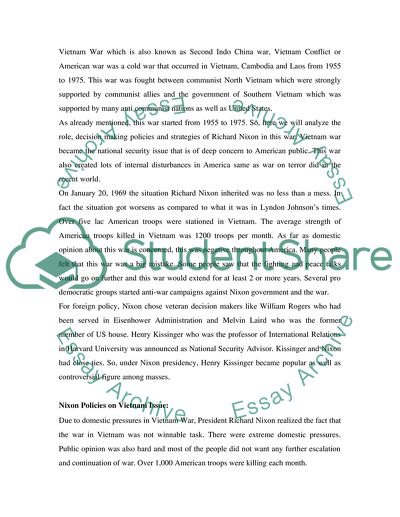Cite this document
(The Vietnam War: Richard M. Nixon Research Paper, n.d.)
The Vietnam War: Richard M. Nixon Research Paper. Retrieved from https://studentshare.org/history/1737433-us-presidents-and-the-presidency
The Vietnam War: Richard M. Nixon Research Paper. Retrieved from https://studentshare.org/history/1737433-us-presidents-and-the-presidency
(The Vietnam War: Richard M. Nixon Research Paper)
The Vietnam War: Richard M. Nixon Research Paper. https://studentshare.org/history/1737433-us-presidents-and-the-presidency.
The Vietnam War: Richard M. Nixon Research Paper. https://studentshare.org/history/1737433-us-presidents-and-the-presidency.
“The Vietnam War: Richard M. Nixon Research Paper”, n.d. https://studentshare.org/history/1737433-us-presidents-and-the-presidency.


